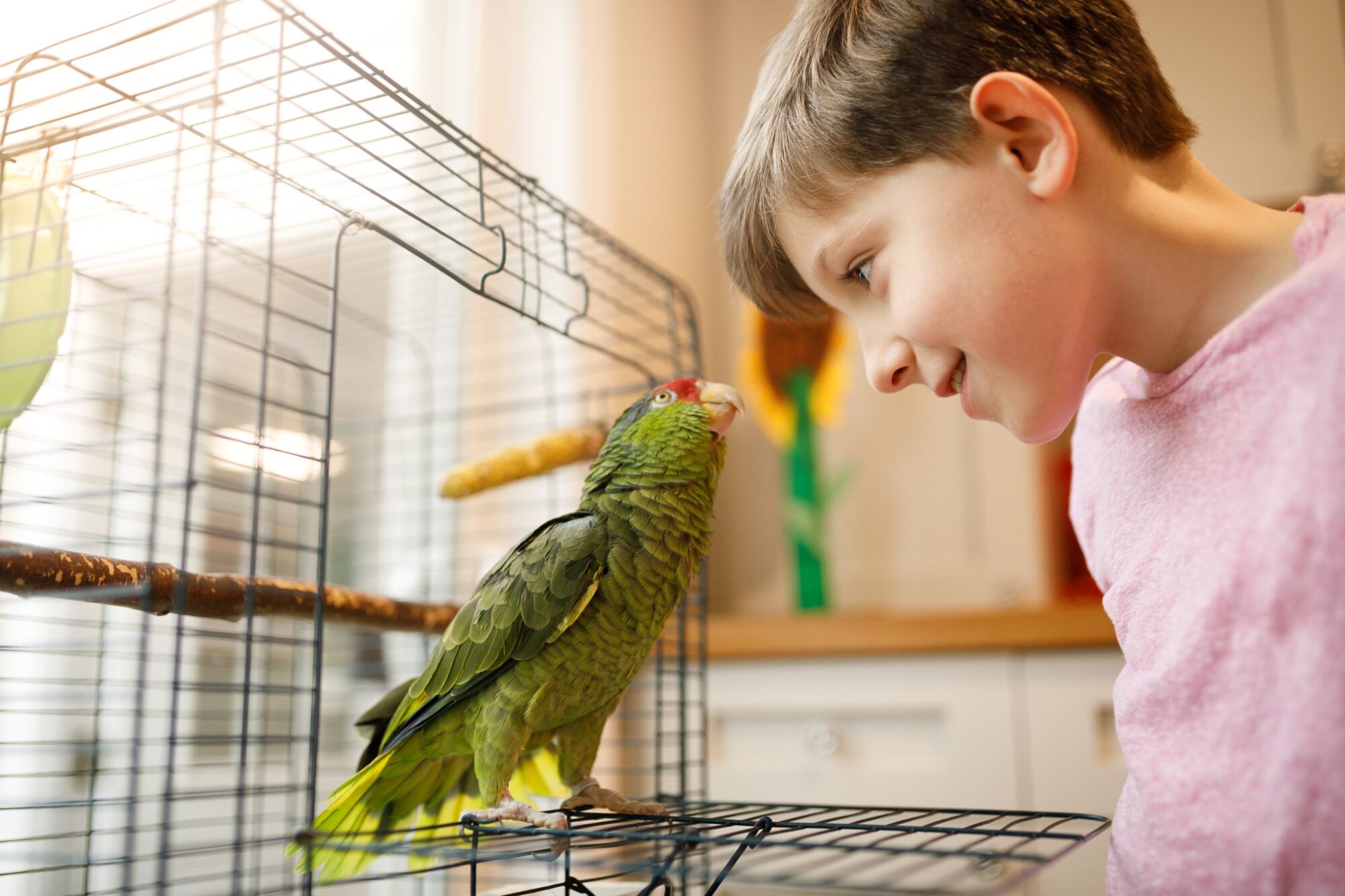Blog
Husbandry Care for Birds

Are you bringing home a feathered friend for the first time? You’re in for a treat! The bond between a bird and its pet parent can be one of the strongest in the world of pet parenting. But providing appropriate husbandry care for birds takes some effort. If you’ve never cared for a domesticated bird before, learning avian husbandry care is key. The team at 10 West Bird & Animal Hospital would like to share the basics of setting your bird up with a perfect home environment.
Pet Bird Care 101
1. Bird Cage Basics
A bird cage should be big enough for your bird to walk around or stretch his wings without bumping into anything. A good rule of thumb? Get a cage that’s twice as wide as your bird’s wingspan. If you plan to keep more than one bird, you’ll need to double the cage space. Only purchase a cage meant for birds. Make sure you stock the cage with a:
- Perch
- Toy
- Hiding place
- Water bowl
- Food bowl
- Birdbath or extra water bowl for bathing
Cages must be kept clean. Line the bottom of the cage with a paper liner to catch your bird’s fecal matter and replace it every other day. Regularly wipe down the cage, food bowl, water bowls, toys, and perches with a cage cleaner formulated for bird cages.
2. The Food and Water Guide
Birds like to peck at their food throughout the day, which is why we recommend keeping her food bowl at least half full at all times. Birds should have fresh veggies and bird food pellets that provide complete nutrition every day.
Seeds, nuts, and fruits should also be part of your bird’s diet. Each species comes with different dietary needs, so consult with your veterinarian before you bring your bird home.
When it comes to water, birds use it for bathing and drinking—just like us! Provide at least two water sources to give your feathered friend options. Make sure to fill both water bowls with fresh, clean water each day.
3. Bird-Proofing Your House
Birds are sensitive to the air quality inside your home. Avian husbandry care means you must be careful to avoid using products that are toxic to birds, including:
- Teflon products, as the fumes from the nonstick coating can make your bird incredibly sick
- Cleaning sprays, aerosols, room fresheners, or bleach-based products (you can use these but not in the same room where your bird lives)
- Candles
- Cigarettes and cigars
- Vape pens
You should be careful to quarantine new additions to your flock. Birds can easily spread diseases, and a new bird should have a clean bill of health before it joins the existing flock. This means your new bird will need to live in a separate room for at least 45-60 days. With regular wellness exams and a positive health report from your vet, your bird can join the flock after this initial quarantine period.
Finally, birds benefit from time spent outside the cage, so it’s important to close all doors, windows, and curtains when you let your bird out to play. This helps keep them from escaping or flying into window glass.
Learning husbandry care for birds can be exciting, but we know it comes with stressors, too. Feel free to reach out to our veterinary team for any questions about avian care or to schedule a new bird appointment. We look forward to meeting your chirpy pal!
